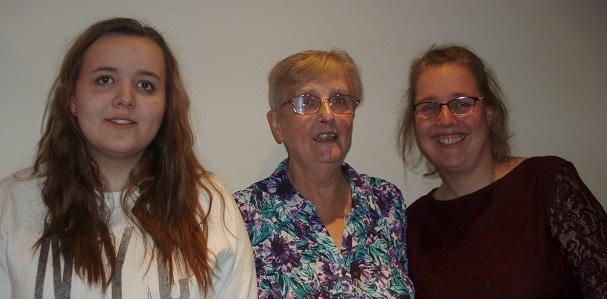Frances
How Frances thought a diagnosis of diabetes explained how ill she felt. It turned out to be diffuse large B-cell lymphoma

‘In July 2014, at the age of 72, I started to feel really exhausted. I visited my doctor who thought it could be an infection, but this exhaustion got worse, so I went back to my doctor who arranged more blood tests. These showed I was type 2 diabetic. I thought they’d got to the bottom of the problem, especially as both my father and sister had type 2 diabetes. I was prescribed Metformin and looked forward to feeling considerably better.
I felt so confident that my health would improve, I booked a trip to New York where my son lives. I felt a little better over the two weeks I was there, but on my return my health went rapidly downhill. I couldn’t eat anything, had no appetite and was losing weight rapidly. The exhaustion that I’d hoped would improve got worse, breathing was difficult and I was struggling to walk even a short distance. Clearly there was something else wrong.
I had gone for a massage in November and when the masseuse found a lump in my neck she said I should see my doctor. My GP referred me to an ear, nose and throat (ENT) specialist for the lump and also a gastroenterologist to see why I was having such problems eating. I had a fine needle biopsy taken from the lump in my neck and a chest X-ray to investigate my breathing problems.
While waiting for the test results, I seemed to get far worse; I was struggling to breathe and couldn’t eat or drink. I had also developed a cough which had gone on for over 4 weeks. My daughter insisted on taking me to A&E where I had all sorts of tests done. I was admitted into haematology. I had the lump in my neck removed for biopsy as well as blood tests and a CT scan. This revealed that I didn’t have just one lump in my neck, but lumps on the other side of my neck, in my abdomen, my chest, groin and armpits. I needed to have fluid drained off my lungs which was the reason I was struggling to breathe and I was fed through a nasal tube because I still couldn’t keep any food down.
I was in hospital for nine weeks and the diagnosis was confirmed as diffuse large B-cell lymphoma, a high-grade non-Hodgkin lymphoma. My health was gradually improving which was necessary for the R-CHOP chemotherapy. I was in hospital for the first 2 cycles and at one point I was unable to do anything for myself. I lost the use of my legs, my bladder and my bowel. Although I had expected to lose the hair on my head, I was shocked to actually lose all my body hair.
I became very depressed. I didn’t want to become dependent on people and be unable to do anything for myself. I was walking with a frame but felt so fatigued I had no interest in anything. At first I refused to have the second cycle of chemo but one of the consultants explained that I was already a long way through my treatment and helped me feel that I shouldn’t give up.
Looking back now he was right. I really wish at that time I had someone to talk to who had been through this. I didn’t know about the Lymphoma action or its Buddy scheme, but I would have found it enormously helpful.
I went home before my third cycle of chemotherapy and one of my granddaughters, who was 16 at the time, moved in with me for the first two weeks. She was able to help me get dressed and washed, help with my feeding tubes and the drugs I needed to take. She was marvellous.
I seemed to pick up an infection after each chemotherapy and had to be admitted into hospital several times. Apart from exhaustion, I also developed pulmonary embolisms in my lung so had to go on anticoagulants. The chemo also affected my nails and I developed peripheral neuropathy in my toes. After six cycles of R-CHOP I had a PET scan. I had lumps deep in my abdomen which had not gone, but they had not grown and were not active. My consultant discussed my case at a multidisciplinary team (MDT) meeting and it was agreed to stop treatment rather than carry on with another two cycles of chemotherapy, which could have done more harm than good. Knowing that four consultants discussed my case was really reassuring and gave me confidence that this was the best decision in my case.
Once I had finished chemotherapy my body became stronger and coming off the feeding tube felt like a real step forward. While undergoing treatment my type 2 diabetes was controlled with insulin, but I was able to return to an alternative medication afterwards.
Since treatment, I have visited my sister in Scotland, taking my granddaughter with me and even went to New York to visit my son, taking my other granddaughter. Travel Insurance was very expensive but at least I was covered.’
